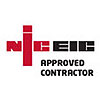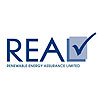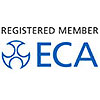About the Green Deal
What is the Green deal?
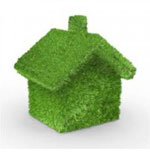 The Green Deal is the new government initiative that is designed to aggregate business and home owners to employ
more green technologies in their properties. The idea is simple; install new green technology into your property
with no up front costs. You will pay back the costs through your energy bill over a period of time. This is unlike
a conventional loan because if you move out of the property the bill stays with the property where the savings are
occurring and not with the bill payer.
The Green Deal is the new government initiative that is designed to aggregate business and home owners to employ
more green technologies in their properties. The idea is simple; install new green technology into your property
with no up front costs. You will pay back the costs through your energy bill over a period of time. This is unlike
a conventional loan because if you move out of the property the bill stays with the property where the savings are
occurring and not with the bill payer.
The "Golden Rule" of the Green Deal is; the expected financial savings must be equal to or greater than the costs attached to the energy bill.
Key to the government's thinking is that the building stock in Britain is some of the oldest in Europe and to bring it up to date, it needs to be properly insulated. Once the buildings are properly insulated, occupiers will spend less money on heating them. This is why the government has linked the energy companies to the scheme.
This website is developed to help you discover the information that you will need to benefit from the Green Deal. There are many different bodies that will be involved in the Green Deal and it's imperative that you know where you fit into the over all scheme.
Green Deal for Home Owners
The Government is aiming the Green Deal squarely at homeowners and reto fitting as many older type properties as is possible. The biggest winners are going to be the older style properties built prior to the 1920?s. There is a limit of £10,000 for domestic home owners at present. Homeowners will be able to install the following types of green measures;
The other types of measures that will be covered by the Green Deal are 'energy in' measures these will include:
Each property will have to be rigorously inspected by a Green Deal accredited advisor to see which measures will return the best results. The Green Deal for homes will enable up to 26 million homes to be upgraded over the next 25 years.
Once the assessment has been made of the property the advisor will make suggestions to the home owner of Green Deal providers and Green Deal Plan will be written outlining the work to be carried out. All Green Deal providers and materials will have been through a series of tests to ensure that the homeowner can expect a standard of workmanship and quality regardless of the trades people involved. All the work will have a warrantee as well as all the materials used in the installation giving the home owner peace of mind.
Green Deal for Tenants
What Can Tenants Expect From The Green Deal?
Tenants can apply for the Green Deal as long as they have the consent of the landlord. The landlord can also apply for the Green deal as long as they have an agreement with the tenant. Because the Green Deal will be benefit both the landlord and the tenant it is hoped that there will be a large take up of the initiative in the private rented sector.
According to the Department of Energy & Climate Change "the private rental sector has the highest proportion of least energy efficient homes - 5.8% of G rated properties compared with 3.4% in owner-occupier." It appears that this sector has the most to gain both for tenants and for landlords.
Social housing tenants can also benefit from the Green Deal. Across the country councils are gearing up to take advantage of the low borrowing rates that will be available through the Green Deal. Councils are well versed in larger scale projects to take advantage of the Green Deal and are used to working around occupied properties.
In the longer term from April 2018 it will be unlawful to rent out a house or business premise which has less than an "E" energy efficiency rating. This will mean that all properties will eventually have to have both an up to date Energy Performance Certificate (EPC) and have a rating of E or above to be rented.
Green Deal for Businesses
The Coalition Government is going to help businesses be included in the forthcoming Green Deal. Businesses will be able to apply for funding to help improve the energy efficiency of their current building. After an assessment has been carried out outlining which technologies will be the most effective a business owner can apply for funding to have the installation made. The funding that will be available will be of a high value than is offered to home owners, although exact details have yet to be finalized.
The businesses building will be effectively responsible for the costs of all the improvements and these costs will be repaid through the energy bill related to the property. There will be no up front costs for the business to incur at the outset.
The golden rule of the Green Deal also applies here it states that:
The expected financial savings must be equal to or greater than the costs attached to the energy bill
There are already existing schemes that some business might already be signed up to and the Green Deal will have to be worked into these obligations. Because of the layered complexity that is involved with the business sector there will be differences from the domestic market although the fundamental principals will remain the same.
Currently there are schemes, such as the Climate Change Agreements and the Carbon Reduction Commitment Energy Efficiency Scheme, which some businesses will be aware of. The government is currently looking at how these will all be aligned to make clear choices available to the business community.
Businesses will have the same measures available to them as domestic customers but some will not adhere to the Golden Rule of the Green Deal due to the size of some business premises. For example if a business is in a large warehouse it may not be cost effective to fit Solar panels to the building due to the high initial costs. It might however be cost effective to fit lighting controls and low energy lights which will give a much faster return on investment and fit into the Green Deals Golden Rule.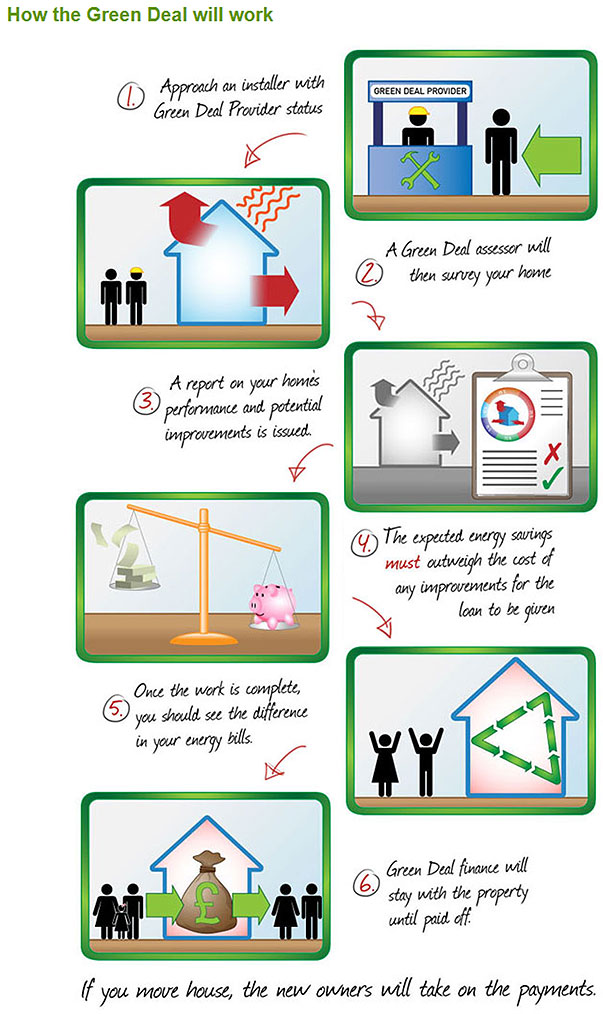
 The Green Deal is the new government initiative that is designed to aggregate business and home owners to employ
more green technologies in their properties. The idea is simple; install new green technology into your property
with no up front costs. You will pay back the costs through your energy bill over a period of time. This is unlike
a conventional loan because if you move out of the property the bill stays with the property where the savings are
occurring and not with the bill payer.
The Green Deal is the new government initiative that is designed to aggregate business and home owners to employ
more green technologies in their properties. The idea is simple; install new green technology into your property
with no up front costs. You will pay back the costs through your energy bill over a period of time. This is unlike
a conventional loan because if you move out of the property the bill stays with the property where the savings are
occurring and not with the bill payer.The "Golden Rule" of the Green Deal is; the expected financial savings must be equal to or greater than the costs attached to the energy bill.
Key to the government's thinking is that the building stock in Britain is some of the oldest in Europe and to bring it up to date, it needs to be properly insulated. Once the buildings are properly insulated, occupiers will spend less money on heating them. This is why the government has linked the energy companies to the scheme.
This website is developed to help you discover the information that you will need to benefit from the Green Deal. There are many different bodies that will be involved in the Green Deal and it's imperative that you know where you fit into the over all scheme.
Green Deal for Home Owners
The Government is aiming the Green Deal squarely at homeowners and reto fitting as many older type properties as is possible. The biggest winners are going to be the older style properties built prior to the 1920?s. There is a limit of £10,000 for domestic home owners at present. Homeowners will be able to install the following types of green measures;
- Wall insulation both solid and cavity walls will be covered
- Loft Insulation
- Double Glazing
- Door insulation
- Smart meters
The other types of measures that will be covered by the Green Deal are 'energy in' measures these will include:
- Solar power, both Thermal and Photo Voltaic panels
- Air and Gound Source Heat Pumps
- Biomass Boilers
Each property will have to be rigorously inspected by a Green Deal accredited advisor to see which measures will return the best results. The Green Deal for homes will enable up to 26 million homes to be upgraded over the next 25 years.
Once the assessment has been made of the property the advisor will make suggestions to the home owner of Green Deal providers and Green Deal Plan will be written outlining the work to be carried out. All Green Deal providers and materials will have been through a series of tests to ensure that the homeowner can expect a standard of workmanship and quality regardless of the trades people involved. All the work will have a warrantee as well as all the materials used in the installation giving the home owner peace of mind.
Green Deal for Tenants
What Can Tenants Expect From The Green Deal?
Tenants can apply for the Green Deal as long as they have the consent of the landlord. The landlord can also apply for the Green deal as long as they have an agreement with the tenant. Because the Green Deal will be benefit both the landlord and the tenant it is hoped that there will be a large take up of the initiative in the private rented sector.
According to the Department of Energy & Climate Change "the private rental sector has the highest proportion of least energy efficient homes - 5.8% of G rated properties compared with 3.4% in owner-occupier." It appears that this sector has the most to gain both for tenants and for landlords.
Social housing tenants can also benefit from the Green Deal. Across the country councils are gearing up to take advantage of the low borrowing rates that will be available through the Green Deal. Councils are well versed in larger scale projects to take advantage of the Green Deal and are used to working around occupied properties.
In the longer term from April 2018 it will be unlawful to rent out a house or business premise which has less than an "E" energy efficiency rating. This will mean that all properties will eventually have to have both an up to date Energy Performance Certificate (EPC) and have a rating of E or above to be rented.
Green Deal for Businesses
The Coalition Government is going to help businesses be included in the forthcoming Green Deal. Businesses will be able to apply for funding to help improve the energy efficiency of their current building. After an assessment has been carried out outlining which technologies will be the most effective a business owner can apply for funding to have the installation made. The funding that will be available will be of a high value than is offered to home owners, although exact details have yet to be finalized.
The businesses building will be effectively responsible for the costs of all the improvements and these costs will be repaid through the energy bill related to the property. There will be no up front costs for the business to incur at the outset.
The golden rule of the Green Deal also applies here it states that:
The expected financial savings must be equal to or greater than the costs attached to the energy bill
There are already existing schemes that some business might already be signed up to and the Green Deal will have to be worked into these obligations. Because of the layered complexity that is involved with the business sector there will be differences from the domestic market although the fundamental principals will remain the same.
Currently there are schemes, such as the Climate Change Agreements and the Carbon Reduction Commitment Energy Efficiency Scheme, which some businesses will be aware of. The government is currently looking at how these will all be aligned to make clear choices available to the business community.
Businesses will have the same measures available to them as domestic customers but some will not adhere to the Golden Rule of the Green Deal due to the size of some business premises. For example if a business is in a large warehouse it may not be cost effective to fit Solar panels to the building due to the high initial costs. It might however be cost effective to fit lighting controls and low energy lights which will give a much faster return on investment and fit into the Green Deals Golden Rule.




